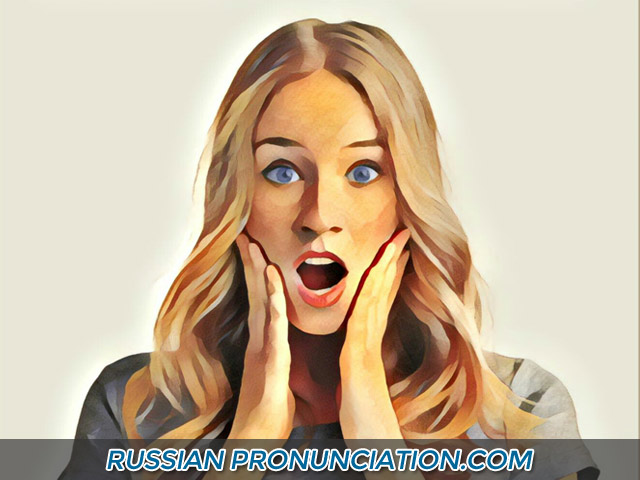
Full Episode Audio
Exercises Only Audio
Download Full Episode (right click save-as)
Welcome to episode 9. Today we’re going to examine a phenomenon known as voiced and devoiced consonants. Here’s what I’d like you to do. Assuming you’re not driving at the moment, put your fingers on your throat and say the word “cats.” Now say the word “dogs.” Feel the difference? Both words end with the letter S, but our vocal cords only vibrate when we say “dogs.” And that vibration, when we use our vocal cords to make a consonant, we call it voicing. Pretty logical term.
Now here’s a question: When did you memorize these rules for which consonants in English are voiced? Did you study some charts in a textbook? Or maybe your English teacher explained the rules back in grade school? You must’ve memorized them somewhere, or else how do you know that—for example—the letters “ed” at the end of the word ‘parked’ are devoiced, and yet the ‘ed’ at the end of ‘shoved’ are voiced?
Of course you didn’t memorize any rules. That’s ridiculous. What happened was, as a kid, you had tons of exposure to these sounds and over time you picked up the patterns. That’s all it is. And yet, do a search of “russian pronunciation,” and every single course you find makes a show of all the pronunciation rules they intend to make you memorize. As if that is how language is learned.
The way language is actually acquired—the way our brains are hard wired—is to look for patterns.
For ex: The Russian letter Г
On its own you can feel that Г is voiced. Our vocal cords vibrate. So listen, and repeat these words:
Галина
гулять
Гора
Гид
The G was at the start of those words, and it was voiced each time. In these next ones, the G will be the last letter. Listen:
Бог
враг
луг
Is it just me, or did those all sound like they ended with a K? Listen again…
Well, actually, those are G’s…but they are devoiced. So it seems that we’ve spotted a pattern. Let’s see if we can extrapolate. How will the Russian word for ‘flag’ be pronounced? It’s a direct cognate, spelled with an F, an L, an A and a G. What’s your best guess—how will it sound?
Флаг (like: флак)
Did you make that G at the end sound like a K? Awesome. That means the pattern is already sinking in. Let’s look at those last four words—the ones where Г (G) was the final letter—but not let’s add a vowel after that G. Listen…
Богу
врага
луга
Флагом
Huh…Our ‘G’ is now voiced again. Interesting. Listen again.
So how do you think the Russian word for a ‘toga’ will be pronounced? You know, like that white robe the ancient Romans used to wear. T-O-Г-A…What’s your guess? Listen…
Тога
Was the G voiced or not? It was voiced. Gosh, how did you get that right? We haven’t memorized any pronunciation charts yet. Don’t we need a long and complicated list of rules before we can correctly pronounce Russian words?
No. We just need to spot the patterns.
Let’s try that again with a different letter. The Russian Д (D). Like the letter Г, the Russian letter Д is voiced when it stands alone. And in these words? Listen…
доллар
диск
дать
дуб
The Д was at the start of those words, and it was voiced each time. In these next ones, it will be the last letter. Listen.
мёд
год
сад
Again….Is it just me, or did those all sound like they ended with a T? Listen again.
Well, actually, those are D’s…but, being at the very end of those words, they’re devoiced. So again, let’s see if we can extrapolate. How will the Russian word for ‘code’ be pronounced? Just three letter: K-O-Д
код
Did you make that Д at the end sound like the letter Т? Awesome. Let’s look at those last four words—the ones where Д was the final letter—and let’s add a vowel after it. Listen…
мёдом
году
саду
кода
Huh…Our Д is voiced again. So, here’s a quiz: There’s a very popular, very cheap Russian automobile, and it’s spelled like this: L-A-D-A. How do you think the word is pronounced?
Лада
Did you voice the Д? Excellent!
To help us internalize these patterns, let’s learn two гыуагд phrases. For now, just listen and repeat:
О, мой Бог…
That was three words. O, мой Бог
Imagine you and your partner have been arguing about something for hours. It seems like you’ve finally agreed to disagree and you walk away…and then the other person brings it up again. You say, “Oh (groan…groan). Are we still talking about this?”
(i.e. Oh my God!) Are we still talking about this?!
What would you say there, where I groaned? “Oh my God, are we still discussing this?”
That’s what О, мой Бог means. Literally, Oh…my….God.
That last word is spelled Б-О-Г but the G (Г) is devoiced. Бог
Here’s our second phrase: Слава Богу
That’s just two words. Listen again?
What does it mean? Well, let’s say you’re out somewhere with friends when you realize your wallet is missing. In a panic, you check everywhere. Can’t find it. So you go to the cafe where you guys had lunch. And there it is, under the table where you’d been eating. You pick it…”Слава Богу…I found it!”
In normal English, we’d say, “Thank God.” But literally in Russian Слава Богу translates as Glory to God. And since the G (Г) is no longer the final letter, it’s back to being voiced.
Let’s do those side by side. Oh my God…
О, мой Бог.
Thank God…lit: Glory to God…
Слава Богу
For today’s review, see if you can recall on your own, the official word or phrase from the first eight episodes. You do that, and I’ll see you in Ep. 10… our mid-term!
Podcast: Play in new window | Download

